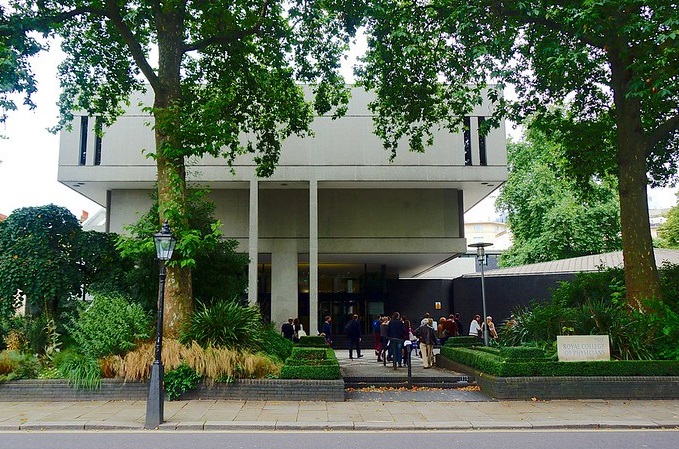Date: Monday 30th March 2020
Release time: Immediate
Care Not Killing welcomes news that the Royal College of Physicians confirms it does not support assisted suicide or euthanasia
Care Not Killing welcomes the news that the Royal College of Physicians (RCP) has confirmed that it does not support assisted suicide, or euthanasia and has criticised those who have suggested it does.
In a statement, posted on the College's website, it says:
'In early 2019 the RCP carried out an online survey of its members' and fellows' views on the subject of assisted dying. 43.4% of respondents said that the RCP should be opposed to a change in the law on assisted dying, 31.6% said the RCP should support a change in the law, and 25% said the RCP should be neutral. Based on these results, RCP Council adopted a position of neutrality on 21st March 2019.
'Neutrality was defined as neither supporting nor opposing a change in the law, to try to represent the breadth of views within its membership. Regrettably, this position has been interpreted by some as suggesting that the College is either indifferent to legal change or is supportive of a change in the law.
'So that there can be no doubt, the RCP clarifies that it does not support a change in the law to permit assisted dying at the present time...'
The statement by the RCP mirrors the position of the Royal College of GPs, which last month, following a poll of its 53,000 members, restated their strong opposition to changing the law on assisted suicide and euthanasia.
Dr Gordon Macdonald, Chief Executive of Care Not Killing commented:
'This extensive and unusually frank statement from the UK's oldest medical organisation, rightly puts a sword to the lie that RCP supports a change in the law - it does not.
'Interestingly, the College, in their statement, decided to highlight that just one in four doctors (25 per cent) would be willing to take part in an assisted suicide if the laws were changed.
'The current laws on assisted suicide and euthanasia exist to protect those who are sick, elderly, depressed or disabled from feeling obliged to end their lives. This is not an imagined risk. As we have seen in places like Oregon and Washington, a majority of those ending their lives cite the fear of being a burden on their families and carers as a reason for the decision to end their life.
'There are other dangers too. In Canada, which only legalised assisted suicide and euthanasia in 2016 for the terminally ill, the Quebec Superior Court struck down this requirement last year, opening up euthanasia for those with chronic conditions and mental health problems. People like, Alan Nichols, a former school taker who although struggling with depression was not terminally ill. After being admitted into Chilliwack General Hospital, last summer he was euthanised by lethal injection. Or Roger Foley from Ontario. Roger, who suffers from a neurological disease, recorded hospital staff offering him a 'medically assisted death', despite his repeated statements that he did not want to die and wanted to return to his home.
'No wonder not a single doctors' group or major disability rights organisation supports changing the law, including the British Medical Association, the Royal College of General Practitioners, the British Geriatric Society, the World Medical Association and the Association for Palliative Medicine.
'Or why Parliamentarians across the UK repeatedly reject attempts to introduce assisted suicide and euthanasia, more than ten times since 2003 out of concern for public safety, including in 2015 when the House of Commons overwhelmingly voted against any change in the law by 330 votes to 118. The current laws prohibiting assisted suicide and euthanasia protect vulnerable people and do not need changing.'
For media inquiries, please call 07970 162225.
Ends
Editors Notes
Care Not Killing is a UK-based alliance bringing together human rights and disability rights organisations, health care and palliative care groups, faith-based organisations groups, and thousands of concerned individuals.
We have three key aims:
- to promote more and better palliative care;
- to ensure that existing laws against euthanasia and assisted suicide are not weakened or repealed;
- to inform public opinion further against any weakening of the law.
We seek to attract the broadest support among health care professionals, allied health services and others opposed to euthanasia by campaigning on the basis of powerful arguments underpinned by the latest, well-researched and credible evidence.
The Full RCP statement reads:
The RCP clarifies its position on assisted dying
In early 2019 the RCP carried out an online survey of its members' and fellows' views on the subject of assisted dying.
43.4% of respondents said that the RCP should be opposed to a change in the law on assisted dying, 31.6% said the RCP should support a change in the law, and 25% said the RCP should be neutral. Based on these results RCP Council adopted a position of neutrality on 21st March 2019.
Neutrality was defined as neither supporting nor opposing a change in the law, to try to represent the breadth of views within its membership. Regrettably, this position has been interpreted by some as suggesting that the College is either indifferent to legal change or is supportive of a change in the law.
So that there can be no doubt, the RCP clarifies that it does not support a change in the law to permit assisted dying at the present time.
- The RCP would also like to reiterate the following points relevant to the survey and its position:
- The RCP has an important role in informing the societal debate on this issue, and is keen to do so;
- Whilst the ultimate decision on assisted dying rests with society through Parliament, professional and clinical issues pose significant challenges to the success of any future legislation;
- There remain many shortcomings in the provision of palliative care, and physicians of all shades of opinion in the current debate share a commitment to the improvement of care at the end of life;
- There is a plurality of views within the RCP membership on the issue of assisted dying;
- Whilst a significant minority of its fellows and members support a change in the law, a greater number remain opposed;
- The majority of doctors would be unwilling to participate actively in assisted dying if the law were changed to permit it, with only 25% indicating a willingness to do so.
https://www.rcplondon.ac.uk/news/rcp-clarifies-its-position-assisted-dying
*As this story is dealing with suicide, please could we ask that you include details about organisations that offer help and support to vulnerable people who might be feeling suicidal such as the Samaritans, CALM or similar - Thank you.*
© Image copyright of Ted Eytan and licensed for reuse under Creative Commons Licence







